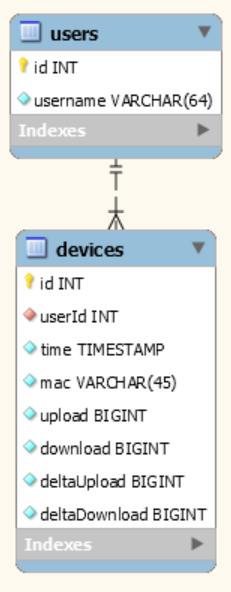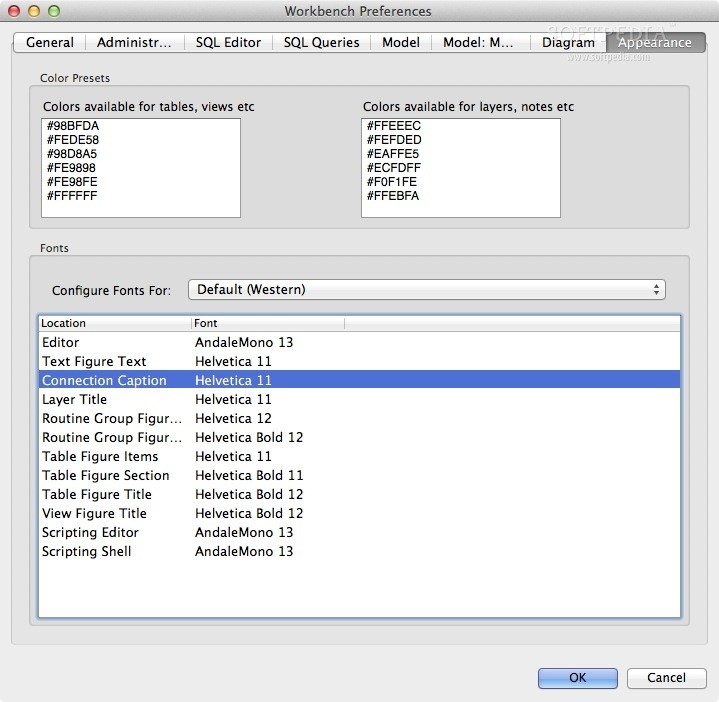

- #Mysql workbench for mac catalina how to#
- #Mysql workbench for mac catalina 32 bit#
- #Mysql workbench for mac catalina upgrade#
- #Mysql workbench for mac catalina password#
- #Mysql workbench for mac catalina download#
Include /private/etc/apache2/extra/nfįind the following lines and comment them by adding # at the beginning of the line. Uncomment the following line for User home directories. LoadModule rewrite_module libexec/apache2/mod_rewrite.so LoadModule include_module libexec/apache2/mod_include.so LoadModule userdir_module libexec/apache2/mod_userdir.so LoadModule authz_host_module libexec/apache2/mod_authz_host.so LoadModule authz_core_module libexec/apache2/mod_authz_core.so To uncomment the lines remove the # from the start of the line. Now open the nf file using vi and uncomment the following lines.

Inside this directory we have the nf file.Īs a good practice we will make a backup copy of the nf file by typing the following command. Now we switch to apache2 directory by typing the following command in the Terminal. Where, username is your username that you have set. You can change the permission by typing the following command. The permission of this file should be the following. Now save the file and exit by typing the following :wq and then hit Enter. Now, come out of the INSERT mode by pressing the Esc key. Here is what I have written in my nf file. Options Indexes MultiViews FollowSymLinksĭon't forget to replace YOUR_USER_NAME with your username. Press the i key to enter into INSERT mode and then type the following in the file. You can use other editors like vim or nano. In the following example I am using vi editor. Now create the configuration file nf inside the users directory. Open terminal and go to the following directory. Type the whoami command in the terminal and it will tell you your username. Note! Replace the username with your username.įor example, my username is yusufshakeel so, my file is nf. Now, we will create a nf file to configure our document root.

You will get a similar path for your Mac. You can merge the above two commands into one by running the following command.įor me the user document root path is the following. Now, run the following command to create the Sites directory. Run the following command in the Terminal to switch to the user home directory. So, open Terminal and get ready to create the user level document root directory. The system level document root in macOS Catalina is located in the following directory.įor the user level we can create a directory called Sites in user directory. One is at the system level and the other is at the user level. This is the location in the computer file system from where the files are accessed when we visit the in a browser.ĭocument Root is a directory where we put our website files. In case you don't get to see the above output then run the following command to check the error. We will change this is the following sections. If you want to stop the Apache server then run the following command.Īnd to restart Apache server run the following command.Īfter starting Apache server go ahead and test it by opening a browser like Safari or Chrome and visit You will get to see the following output in your browser.īy default, the file is getting served from /Library/WebServer/Documents directory.
#Mysql workbench for mac catalina password#
When you use sudo in the terminal then you will be prompted to enter your admin password to proceed. To start Apache web server run the following command. Note! macOS Catalina comes with Apache 2.4.41

To check the version of Apache installed run the following command in the Terminal. Open Terminal using macOS Spotlight or go to /Applications/Utilities and open Terminal. The new macOS Catalina comes with Apache pre-installed. Lets go ahead and configure our LAMP stack development environment on macOS Catalina.
#Mysql workbench for mac catalina how to#
If you are using macOS Mojave then check out this tutorial How to install Apache, MySQL, PHP on macOS Mojave 10.14
#Mysql workbench for mac catalina download#
We will be using the pre-installed Apache and PHP and we will download and setup MySQL database. To change the default shell check the tutorial How to change default shell to bash on macOS Catalina.
#Mysql workbench for mac catalina upgrade#
Kindly upgrade your applications.Īpple has also made zsh as the default shell.
#Mysql workbench for mac catalina 32 bit#
Note! Support for 32 bit apps is removed in Catalina so, all your 32 bit applications will no longer work.


 0 kommentar(er)
0 kommentar(er)
